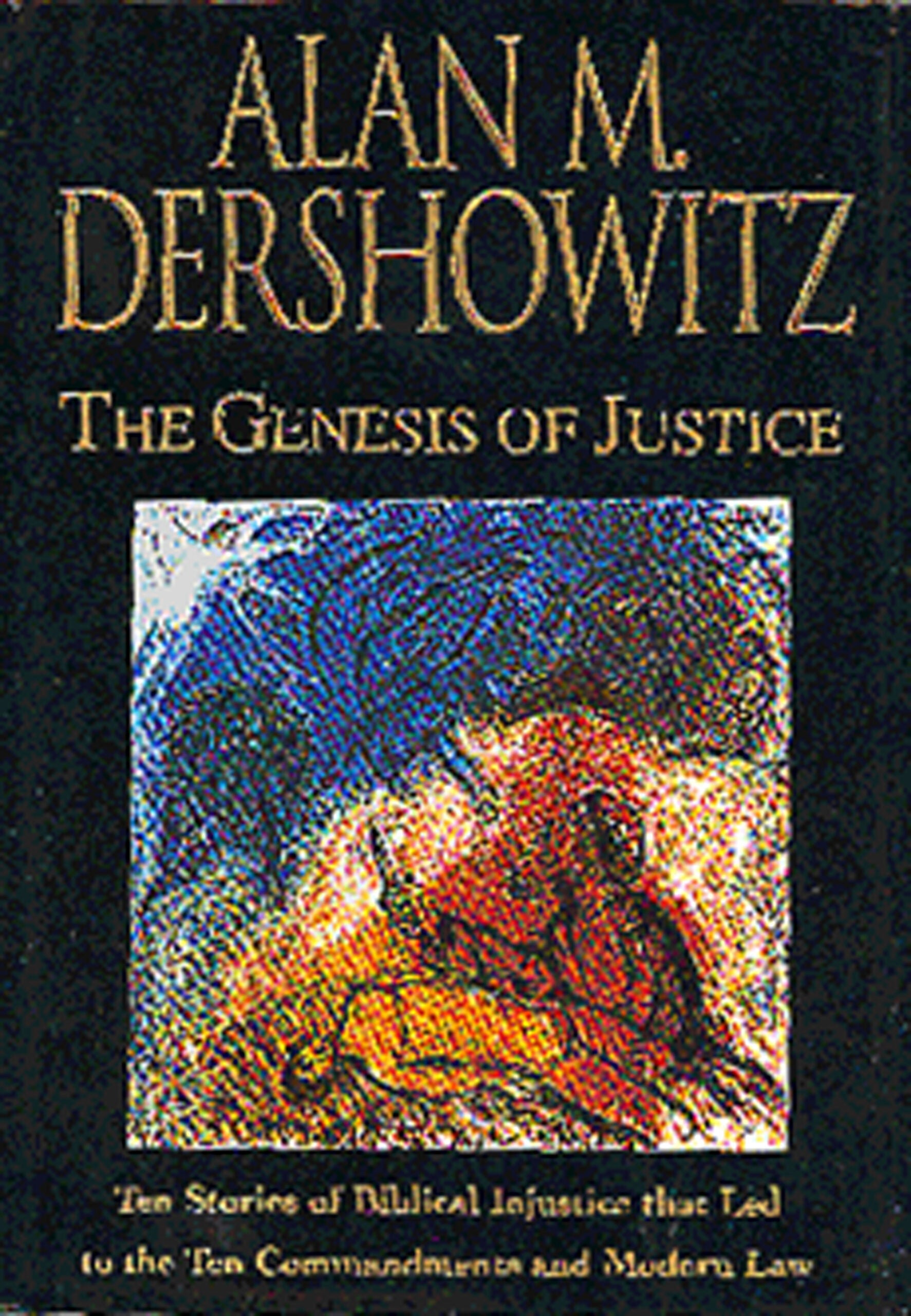
Credit: Stu Rosner Professor Alan Dershowitz
In his new book The Genesis of Justice (Warner Books, 2000), Professor Alan Dershowitz reflects on how stories in the first book of the Bible – replete with unpunished wrongdoing by flawed heroes and the actions and commands of an inscrutable God – set down the groundwork for later laws. Drawing on his own observations and Biblical commentary, Dershowitz explores questions raised by these narratives, such as, in the following excerpt, what sense can we make of a God who asks a father to kill his son?
“My own favorite interpretation is that by commanding Abraham to sacrifice Isaac, God was telling Abraham that in accepting the covenant, he was not receiving any assurances that life would be perfect. Far from it. Through that terrible test, God was demonstrating – in a manner more powerful than words could ever convey – that being a Jew often requires sacrificing that which is most precious to you – even children. The history of the Jewish people has certainly borne that out. During the Crusades, the Inquisition, and especially the Holocaust, many “Abrahams” made the decision to kill their own “Isaacs,” sometimes to prevent their forced conversion, other times to prevent their torture, rape, and eventual murder. The traditional view of the akeidah influenced the willingness of Jews “to turn the Biblical prohibition against murder into an act that became recognized as a legitimate form of kiddush  ha-shem [honoring of God], when fathers killed their children and wives and then committed suicide rather than face forced Baptism during the crusades.” Perhaps this took religious zealotry too far, but during the Holocaust even baptism could not save “genetic” Jews. Parents had to kill or abandon crying babies in order to prevent Nazis from finding Jews in hiding. In one poignant episode during the Holocaust, ninety-three teenage girls – students of a Jewish seminary in Cracow-reportedly took their own lives after learning that they were going to be forced to serve as prostitutes for German soldiers. Before taking poison, they collaborated on a poem, which included the following lines: “Death does not terrify us; we go out to meet him. We served our God while we were alive; We shall know how to sanctify Him by our death. . . . We stood the test, the test of the binding of Isaac.” These have been the tragic realities of Jewish life, and God was warning Abraham that the covenant offered no assurances that such sacrifices would not be required. Sometimes God would intervene. Sometimes He would not. That is the nature of a covenant. So if a Jew witnesses tragedy-even the worst of tragedies, as did Job and those who saw their children die in the Crusades and Holocaust-do not think that God has broken the covenant. Religion is not a panacea for all of life’s tragedies. ”
ha-shem [honoring of God], when fathers killed their children and wives and then committed suicide rather than face forced Baptism during the crusades.” Perhaps this took religious zealotry too far, but during the Holocaust even baptism could not save “genetic” Jews. Parents had to kill or abandon crying babies in order to prevent Nazis from finding Jews in hiding. In one poignant episode during the Holocaust, ninety-three teenage girls – students of a Jewish seminary in Cracow-reportedly took their own lives after learning that they were going to be forced to serve as prostitutes for German soldiers. Before taking poison, they collaborated on a poem, which included the following lines: “Death does not terrify us; we go out to meet him. We served our God while we were alive; We shall know how to sanctify Him by our death. . . . We stood the test, the test of the binding of Isaac.” These have been the tragic realities of Jewish life, and God was warning Abraham that the covenant offered no assurances that such sacrifices would not be required. Sometimes God would intervene. Sometimes He would not. That is the nature of a covenant. So if a Jew witnesses tragedy-even the worst of tragedies, as did Job and those who saw their children die in the Crusades and Holocaust-do not think that God has broken the covenant. Religion is not a panacea for all of life’s tragedies. ”
From The Genesis of Justice: Ten Stories of Biblical Injustice that Led to the Ten Commandments and Modern Law. Copyright © 2000 by Alan M. Dershowitz. Reprinted by permission of Warner Books, Inc.
